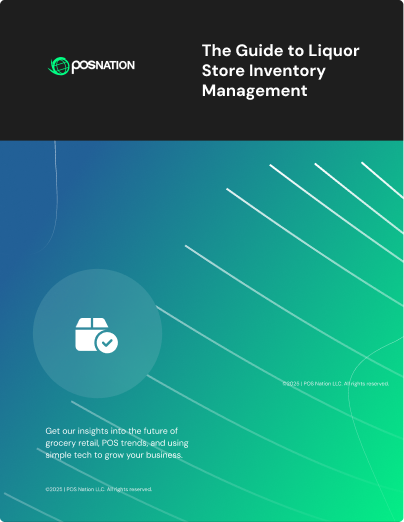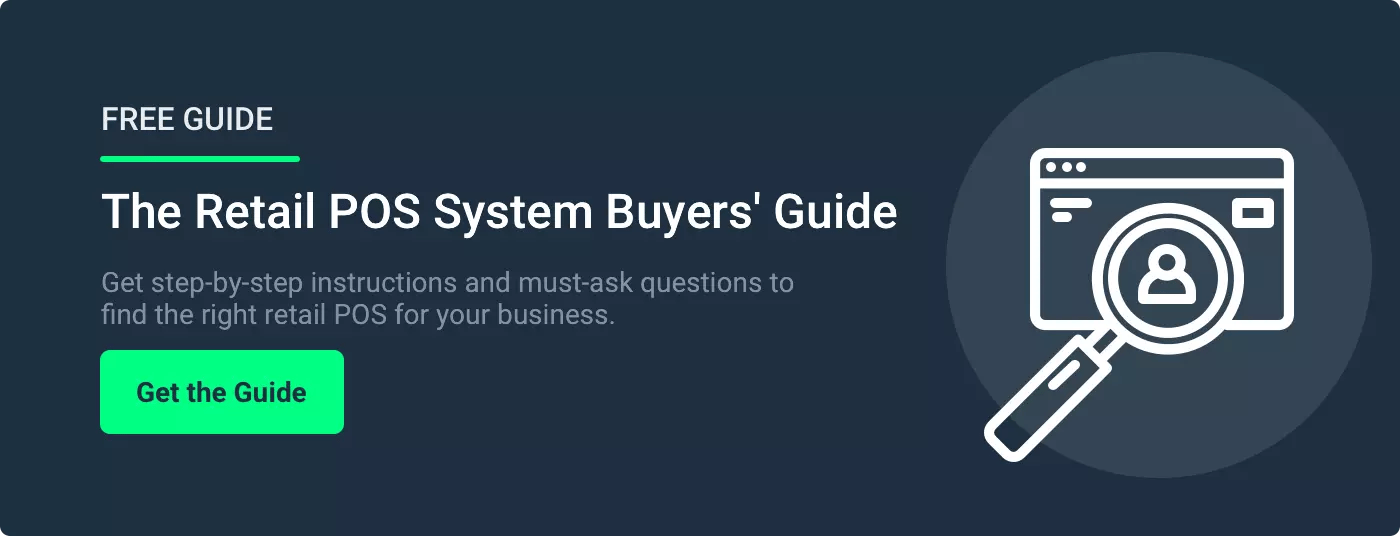Free is expensive. The saying is a chestnut for a reason. It can be costly to open a small business, and you're looking to save money wherever you can. But sometimes, a “free” solution that saves you money in one area of your business can end up costing you more than it saved.
You may have heard that open source software is the way to go. It's cost-effective and customizable. Some solutions have a strong community of users and developers who provide support and regular updates.
However, while open source software doesn't generally have any associated upfront costs, what doesn't cost you today could cost you in unexpected ways in the long run.
Before diving into open source waters, you must consider the pros and cons.
In this article, we'll tell you everything you need to know about open source POS software, its advantages, and drawbacks, and we'll give you some options for reputable providers. We'll arm you with all the information you need to make an informed decision about your retail POS software solution.
What Is Open Source POS Software?
Retail POS software is the operating system that stores use to manage inventory, schedule staff, process payments, and more. It's the heart and soul of all modern retail operations.
There are many solutions on the market, and each software has an entire development team behind it tasked with making updates and improvements over time.
Open source software is any software created collaboratively by a community rather than designed and provided by a software vendor. It's a cost-effective alternative to proprietary software and can offer more flexibility in terms of customization and integration with other systems.
Aside from the fact that it is generally free, the biggest draw of open source POS software is that you can modify or enhance the software as you see fit if you (or your staff) have the skill set necessary to do so.
Let's take a close look at the pros and cons of open source software so you have the complete picture.
Pros of Open Source Software
Cost-Effective: Open source POS software is often free or significantly cheaper than proprietary software, making it an attractive option for small businesses.
Customizable: With open source software, users have access to the source code, so they can modify it to meet their specific business requirements. This can be particularly useful for businesses with unique needs that proprietary software does not meet.
No Vendor Lock-In: Open source POS software isn't tied to any particular vendor, so businesses can easily switch to another solution if needed. Unlike proprietary software tied to specific hardware or systems, open source software is more accessible and flexible.
Community: A large community of users and developers contributes to developing and maintaining many open source software projects. As a result, users can access a wealth of knowledge and resources and receive more frequent updates and fixes to bugs.
Freedom of Choice: Open source software allows businesses to choose the solution that best fits their needs without being constrained by vendor-specific hardware.
Cons of Open Source Software
Lack of Technical Expertise: Open source software requires a certain level of technical expertise to install, configure, and maintain. Businesses lacking the necessary technical knowledge may find it difficult to set up and use it efficiently.
Lack of Support: Your POS software is the backbone of your store's operations. Efficient software can help you manage inventory, employee time-clocking, and customer loyalty programs in addition to processing payments. When your software is working correctly, your store is a well-oiled machine.
When it's not, you might feel like you're stuck in a canoe with no paddles.
The community that develops open source software is made up of volunteers. These volunteers are sometimes willing and able to help users out, but they aren't obligated to do so.
Even if you get assistance from the community with a technical issue, the community members aren't liable for any bad advice they provide. In other words, if the "fix" you get from a volunteer ends up making your software woes even worse, you have no one else to turn to.
Lack of Upgrades and Updates: Your POS software will require maintenance, regardless of whether you choose commercial or open source software. Bug fixes, software updates, and other routine adjustments are a part of the maintenance strategy for any software solution.
The question, then, isn't whether or not your software solution will need maintenance; it's how difficult that maintenance will be to perform. Open source software makes maintenance more complicated than it needs to be.
The first maintenance-related consequence you'll find when using open source software is related to the complexity of the software.
Wading through the mess of programming to patch a vulnerability, fix a bug, or install an update can take twice the time you expect, resulting in additional technical fees to whoever is installing that update. It can also result in downtime in your retail POS software, costing you sales.
When working with open source software, you'll also have to worry about licensing and intellectual property rights issues.
Remember those mystery components we discussed earlier? Each one comes attached with a software license. There are over 200 types of open source software licenses, and diving into the interactions between those licenses can be quite a headache.
Some of the licenses specify that specific components can't be used together. When you're unclear about which components your software uses, it's difficult to ensure you comply with all those different licenses.
You might be slapped with a lawsuit if you don't comply with the licenses for all the components used in your software.
Risk of Data Loss: Open source software may not have the same level of security as proprietary software, and businesses may be at a higher risk of data loss or data breaches.
Your POS software handles a great deal of sensitive customer data. You store customer payment information like credit card numbers, and your customer loyalty program may track birthdays.
Your customer relationship management efforts likely have you tracking addresses and phone numbers. In short, you have a treasure trove of sensitive information in your POS software, and if you want to keep your customers' trust, you'll need to keep their data secure.
When a community member discovers a vulnerability in the software, they list that information publicly on databases like this. The rationale behind this is to alert other users of the vulnerability. However, other users aren't the only ones keeping a close eye on those databases.
Hackers follow open source community updates carefully, waiting for users to reveal vulnerabilities. The hackers can then use those vulnerabilities to launch an attack upon any users who are slow to correct the latest vulnerability.
Top Open Source POS Software Providers
- Odoo POS: Odoo has a suite of tools to help manage your business, and its POS solution integrates with Odoo inventory and e-commerce tools, marketing and sales solutions, and runs on Windows and Linux.
- Openbravo POS: Best for retail businesses with an omnichannel presence, Openbravo is a complete POS solution that supports click-and-collect and returns across multiple stores and channels. Its mobile point of sale terminals are a draw for retail businesses.
- uniCenta POS: Key features include inventory management, reporting, and barcode scanning. It runs on Windows, Linux, and Apple, and is best for retail and hospitality businesses.
- Loyverse POS: Loyverse is popular with mobile and tablet users. You can easily manage sales, inventory, and employees, and its apps are available in 30+ languages. It has customer loyalty capabilities and is suitable for multi-store management.
Is Open Source Software Worth it For Your Business?
Look back through the pros and cons. We might be biased, but the cons outweigh the pros of open source POS software. Unless you are technically minded and have a lot of time, open source software creates a lot of uncertainty and could be a chore you can do without.
It starts free, but add-ons, support access, and hardware are paid features that quickly add up. To add to tangible costs, there's also the time it might take to set up, install the software, and find solutions to any issues.
To summarize, it's a good option if you want to spend a lot of time programming. Open source isn't the way to go if you'd rather outsource your POS needs and enjoy all the benefits of proprietary POS systems.
Open Source POS Software: POS Nation is Here to Help
We're not against open source software. We simply want to make life easier for small business owners.
Open source software has multiple benefits that make it appear attractive upfront. Still, with some digging, it becomes clear that managing an open source POS software solution will offer you nothing but headaches regarding security, support, and more.
If you've decided that open source POS software isn't worth the risk and you're ready to examine a more reliable solution, consider our all-in-one POS system for retail stores.
Our POS software offers features ranging from advanced inventory management to customer loyalty programs and everything in between. Explore our Retail POS Buyers' Guide to better understand what goes into a successful POS system that makes life easier for you and your associates.







 by Gina Obert
by Gina Obert

 by Cort Ouzts
by Cort Ouzts

 by Spence Hoffman
by Spence Hoffman
